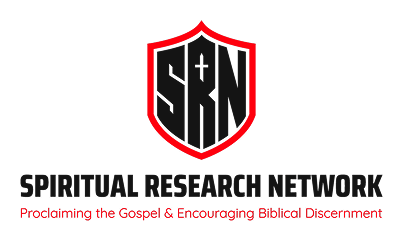Biblical understanding is essential for every believer, yet many Christians struggle to find trustworthy material. Sound guidance is key whether you're a student, parent, small group leader, or church educator. That's where Christian educational resources become valuable. The right tools can deepen faith, clarify doctrine, and support meaningful discipleship.
In a world filled with spiritual confusion, believers need more than inspirational content—they need biblically accurate resources that align with historic Christian faith. Quality education builds spiritual maturity, strengthens biblical literacy, and equips the Church to stand firm in truth.
Categories of Effective Christian Educational Resources
Christian education goes beyond Sunday sermons. It includes structured materials for personal study, group learning, and ministry training. Effective resources cover doctrine, Scripture interpretation, apologetics, worldview, spiritual growth, and more. Below are essential categories to explore.
1. Bible Study Tools
Sound Bible study materials are foundational. These resources help individuals and groups engage with Scripture contextually and accurately. Tools may include Bible dictionaries, concordances, word study guides, and commentaries.
Digital and print options are available. The best ones encourage careful reading, verse-by-verse understanding, and proper application. They guide users to interpret the Bible using Scripture as the final authority—not personal opinion or mystical experience.
2. Christian Curriculum and Discipleship Programs
Christian curriculum is used in churches, homeschool settings, and Christian schools. It includes structured lesson plans, workbooks, teacher guides, and age-appropriate content.
A good curriculum is Christ-centered, rooted in Scripture, and aimed at spiritual formation. It trains children, teens, and adults to know their beliefs and why. Look for programs emphasizing biblical literacy, doctrine, and character development over entertainment or moralism.
3. Apologetics and Worldview Training
Apologetics equips Christians to defend their faith with reason and Scripture. Worldview training helps believers evaluate cultural ideas through a biblical lens. These educational resources are especially helpful for high school and college students facing secular ideologies.
Topics include:
- The reliability of the Bible
- The deity of Christ
- Creation vs. evolution
- Cultural ethics
- Religious pluralism
These tools provide clarity and confidence in a culture that challenges truth.
4. Research and Discernment Guides
With the rise of false teachers and spiritual deception, discernment-based education is more important than ever. Research guides offer biblical analysis of current trends, questionable teachings, and movements that compromise truth.
Discernment resources help Christians:
- Test teachings against Scripture
- Spot theological errors
- Identify spiritual abuse
- Avoid unbiblical influences
These materials do not promote fear. They promote wisdom and caution rooted in God’s Word.
5. Church History and Doctrinal Studies
Understanding Church history and doctrine helps believers avoid old heresies dressed in new language. Doctrinal studies explain essential truths like the Trinity, salvation by grace, and the authority of Scripture. Church history materials highlight God’s work through generations and warn against repeated errors.
These resources build theological depth. They remind us that the Christian faith is not new. It’s tested, enduring, and worth defending.
Are You Still Looking for Trusted Christian Educational Resources?
If you're still searching for reliable Christian educational resources, evaluate each tool’s source, doctrine, and intent. Ask:
- Does this align with Scripture?
- Does it equip or entertain?
- Is the content theologically sound?
- Avoid resources that:
- Minimize Scripture
- Emphasize self over Christ
- Avoid hard truths
- Prioritize emotion over doctrine
Education shapes faith. The tools you use matter. Choose wisely and build on the foundation of God’s Word.
Do you need help finding biblically sound educational tools? Contact the Spiritual Research Network to access trustworthy articles, Bible study materials, curriculum suggestions, and discernment-based research. We support your journey in truth, clarity, and spiritual growth.


.jpg)
